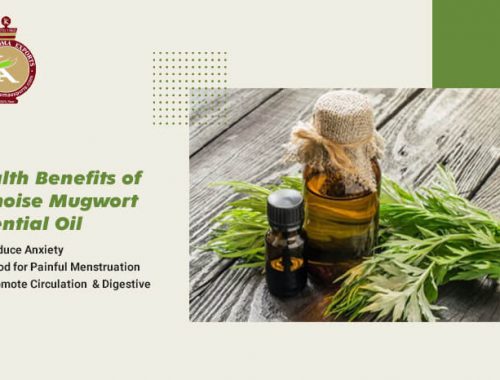Rosemary oil for hair growth has gained impressive scientific backing in recent years. Research shows it’s (Rogaine) for treating hair loss related to androgenic alopecia. With nearly a billion people watching testimonials about its benefits on social media, it’s clear this natural remedy has captured widespread attention.as effective as minoxidil
We’ve been following the research closely, and the results are compelling. Studies published in 2022 and 2024 confirm that rosemary oil stimulates hair growth, with one study finding it matched the effectiveness of minoxidil after just 6 weeks of use. Additionally, rosemary oil appears to enhance blood circulation to the scalp, preventing hair follicles from dying off due to poor blood supply. Perhaps most importantly, people using rosemary oil instead of minoxidil reported fewer issues with itchy scalp at both three-month and six-month check-ins.
Throughout this guide, I’ll share everything you need to know about how to use rosemary oil for hair growth, including the scientific reasons behind its effectiveness, the many benefits it offers beyond just growth, and practical application methods you can start using today. Whether you’re experiencing hair thinning or simply want to improve your hair’s overall health, this natural approach might be exactly what you’ve been looking for.
What makes rosemary oil effective for hair growth
The science behind rosemary oil’s effectiveness for hair growth reveals an impressive natural alternative to conventional treatments. Researchers have identified several key mechanisms that make this essential oil particularly beneficial for those experiencing hair thinning or loss.
And its role in scalp health Carnosic acid
Carnosic acid stands out as the powerhouse compound in rosemary oil. This phenolic chemical compound carries potent anti-inflammatory and antioxidant properties that rejuvenate damaged nerves and tissue. When applied to your scalp, carnosic acid creates an optimal environment where hair can thrive.
Moreover, studies show that carnosic acid significantly inhibits nitric oxide production and nuclear factor kB, which helps reduce inflammation. This anti-inflammatory activity is particularly valuable since approximately 50% of androgenetic alopecia patients show perifollicular inflammatory infiltrate. Furthermore, rosemary extract has demonstrated remarkable inhibitory activity on 5-alpha-reductase (82.4% at 200 mg/mL and 94.6% at 500 mg/mL) compared to finasteride’s 81.9% inhibition.
Improved blood circulation to hair follicles
Primarily, rosemary oil works by enhancing microcirculation around the hair follicles. Consequently, this increased blood flow delivers essential nutrients and oxygen to the hair roots, preventing follicles from being starved of vital nourishment.
Specifically, rosemary oil may benefit nerve tissue by increasing nerve growth factor. This ability to heal nerve endings potentially rejuvenates scalp nerves, thereby restoring hair growth. In fact, Dr. Khetarpal explains, “if you increase blood flow to the scalp, you give your hair the nutrients it needs to shed less, grow more and just be a bit healthier”.
Comparison with minoxidil (Rogaine)
A landmark 2015 compared rosemary oil with 2% minoxidil in treating androgenetic alopecia. The study divided 100 participants into two groups over six months. Notably, both groups experienced a significant increase in hair count at the six-month mark clinical trial
Most impressively, the results showed no significant difference between rosemary oil and minoxidil regarding hair count. However, scalp itching was significantly more frequent in the minoxidil group at both assessed endpoints.
A newer 2023 study with mice found that applying a hair lotion containing 1% rosemary essential oil stimulated hair growth even more effectively than minoxidil. The mice treated with rosemary lotion also showed improvements in hair quality, length, weight, and appearance.
Top benefits of using rosemary oil for hair
Beyond its proven effectiveness for stimulating growth, rosemary oil offers multiple benefits that can transform your overall hair health. Let’s explore the key advantages this natural remedy provides.
Helps reduce hair thinning and shedding
As demonstrated in clinical studies, rosemary oil works (Rogaine) in treating androgenic alopecia. The key difference lies in its gentler approach – participants using rosemary oil reported significantly fewer issues with itchy scalp compared to those using minoxidil as effectively as minoxidil.
Rosemary’s ability to inhibit testosterone 5-alpha-reductase (at impressive rates of 82.4% at 200 mg/mL and 94.6% at 500 mg/mL) helps prevent DHT from binding to androgen receptors. This action directly targets a primary cause of pattern hair loss, subsequently encouraging stronger, healthier growth cycles.
May prevent dandruff and dry scalp
Rosemary oil contains powerful antimicrobial and antifungal compounds that , the yeast-like fungus often responsible for dandruff. Along with this, its anti-inflammatory properties help calm irritated scalps combat Malassezia
The oil’s ability to regulate sebum production creates balance for those struggling with both oily roots and dry patches. Meanwhile, its astringent properties reduce excess oil secretion while still maintaining necessary moisture.
Could delay premature graying
While research is still developing in this area, rosemary’s antioxidant properties may help combat oxidative stress that contributes to premature graying. Stress is a known factor in early hair graying, plus rosemary oil’s ability to reduce stress might indirectly help maintain natural color longer.
Through stimulating blood circulation, rosemary oil potentially encourages melanin production in hair follicles. This increased circulation supports the cells responsible for hair pigmentation.
Improves shine and hair texture
Regular application of rosemary oil helps seal hair cuticles, creating smoother strands with enhanced shine. The oil’s rich nutrient profile, including vitamins A, C, and B-complex, along with minerals like calcium and iron, strengthens hair from root to tip.
By nourishing the hair shaft, rosemary oil makes hair more manageable and reduces frizz. To sum up, this natural approach improves both the appearance and structural integrity of your hair.
How to use rosemary oil for hair growth

Applying rosemary oil correctly makes all the difference in achieving optimal hair growth results. Several effective methods exist, each with specific advantages depending on your hair care routine and needs.
1. Scalp massage with carrier oil
Firstly, dilute rosemary essential oil with a carrier oil to prevent irritation. A typical ratio is of carrier oil. Jojoba oil resembles your scalp’s natural sebum, while coconut and argan oils provide additional moisturizing benefits. Apply the mixture to your scalp using gentle circular motions for 5-10 minutes, focusing on thinning areas. This technique increases blood circulation to hair follicles, supporting their health and function 5 drops of rosemary oil per tablespoon
2. Add to shampoo or conditioner
Accordingly, you can enhance your regular hair products with rosemary oil. Simply add about five drops per ounce of shampoo or conditioner. This method seamlessly incorporates the benefits of rosemary oil into your existing routine without extra steps. Use the product as normal, ensuring thorough rinsing afterward.
3. Use in DIY hair masks or serums
Creating homemade treatments allows for customization based on your hair’s needs. A popular recipe combines 1/2 cup solid coconut oil, 2 tablespoons olive oil, 1 tablespoon honey, and 10 drops of rosemary essential oil. Apply this mask to wet hair, leave for 5 minutes, then rinse thoroughly. Besides nourishing your scalp, these masks can improve shine and texture.
4. Apply overnight and rinse in the morning
Some sources suggest leaving diluted rosemary oil on overnight for intensive treatment. Although, experts recommend caution—always dilute with a carrier oil or alcohol to avoid irritation. To protect your bedding, wear a shower cap or sleep on a towel. Wash thoroughly in the morning to prevent buildup.
5. Use rosemary-infused hair products
Commercial products containing rosemary oil offer convenience and consistency. Look for shampoos, conditioners, and oils with higher concentrations of rosemary extract. Brands like Mielle Organics, JVN, and Kiehl’s offer specially formulated options that incorporate rosemary with complementary ingredients.
6. Frequency: how often to use rosemary oil for hair growth
For optimal results, apply rosemary oil treatments 2-3 times weekly. Consistency is crucial—studies show improvements in hair count after three months of daily application. Initially, start with once or twice weekly applications, gradually increasing frequency as tolerated. Remember that rosemary oil requires regular, ongoing use to maintain its benefits.
Safety tips and who should avoid it
Despite rosemary oil’s many benefits for hair growth, understanding safety precautions is essential before beginning treatment. Proper application not only maximizes results but also prevents potential side effects.
Always dilute with a carrier oil
Pure rosemary oil is highly concentrated and can cause significant irritation when applied directly to your scalp. The maximum safe dilution rate is 3% – exceeding this amount may be too potent for most people. Given that rosemary oil needs proper dilution, a good starting point is mixing two tablespoons of carrier oil with just 2-3 drops of rosemary oil. For sensitive skin, particularly in elderly individuals, a 1% dilution generally provides the safest option.
Do a patch test before full use
Prior to beginning any rosemary oil treatment, a patch test is crucial. Apply a small amount of your diluted mixture to the inside of your elbow or behind your ear, then wait 24 hours to monitor for potential allergic reactions. Without a doubt, this simple step can prevent uncomfortable scalp irritation that might otherwise hinder your hair growth progress.
Avoid during pregnancy or breastfeeding
Generally, rosemary oil should be avoided during pregnancy, especially in the first trimester. There exists concern that rosemary oil contains uterine stimulants that could potentially trigger contractions or premature delivery. Regarding breastfeeding, insufficient reliable information exists about safety, so it’s best to avoid medicinal quantities altogether.
Watch for allergic reactions or irritation
When properly applied, rosemary oil creates a mild tingling sensation indicating increased blood flow. Yet normal reactions differ from adverse ones – your scalp may show slight redness immediately after application, but this should fade within an hour. People with epilepsy or high blood pressure should exercise extra caution, as rosemary oil may interact with medications. Persistent burning, itching, or significant redness suggests you need to adjust your dilution ratio or discontinue use.
Conclusion
Rosemary oil stands out as a remarkable natural alternative for those seeking effective hair growth solutions. Throughout this guide, we’ve seen how this essential oil matches minoxidil’s effectiveness while causing fewer side effects such as scalp irritation. The powerful carnosic acid in rosemary oil works diligently to reduce inflammation and block DHT production, addressing the root causes of hair loss.
Research undoubtedly supports what many have experienced firsthand – consistent application of rosemary oil can transform thinning hair within months. The versatility of application methods makes it easy to incorporate into any hair care routine, whether you prefer direct scalp massages, enhanced hair products, or overnight treatments.
Additionally, the benefits extend well beyond just promoting growth. From dandruff control to improved shine and texture, rosemary oil offers comprehensive hair care in one natural ingredient. Still, safety remains paramount – always dilute properly, perform patch tests, and consult healthcare providers if you have underlying conditions.
After all, the journey to healthier hair doesn’t require harsh chemicals or expensive treatments. Nature has provided this aromatic herb with powerful properties that science now confirms. Whether you’re fighting thinning hair or simply want to boost your hair’s overall health, rosemary oil deserves a place in your hair care arsenal. Start with small, consistent applications and give your hair the natural nourishment it deserves.
Key Takeaways
Discover how rosemary oil can naturally transform your hair growth journey with these science-backed insights and practical application methods.
• Rosemary oil matches minoxidil’s effectiveness – Clinical studies show it’s as effective as Rogaine for hair growth with fewer side effects like scalp irritation.
• Carnosic acid is the key compound – This powerful ingredient reduces inflammation, blocks DHT production, and improves blood circulation to hair follicles.
• Multiple application methods work – Use scalp massages with carrier oils, add to shampoos, create DIY masks, or try overnight treatments 2-3 times weekly.
• Always dilute before use – Mix 2-3 drops with 2 tablespoons of carrier oil (3% maximum concentration) and perform patch tests to prevent irritation.
• Consistency brings results – Studies show significant hair count improvements after 3-6 months of regular use, with benefits extending to dandruff control and improved shine.
Beyond hair growth, rosemary oil offers comprehensive scalp health benefits including reduced shedding, better texture, and potential delay of premature graying. Remember to avoid use during pregnancy and consult healthcare providers if you have epilepsy or high blood pressure.
FAQs
Q1. How should I apply rosemary oil to promote hair growth? Mix 5 drops of rosemary essential oil with a tablespoon of carrier oil like jojoba or coconut. Massage this mixture into your scalp using gentle circular motions for 5-10 minutes, focusing on thinning areas. You can do this 2-3 times a week for optimal results.
Q2. Can rosemary oil actually regrow hair? Yes, rosemary oil has shown promising results for hair regrowth. Studies have found it to be as effective as minoxidil (Rogaine) in treating androgenetic alopecia. It works by improving blood circulation to hair follicles and reducing inflammation, which can promote new hair growth over time.
Q3. How long should I leave rosemary oil in my hair? You can leave diluted rosemary oil on your scalp for at least 5-10 minutes before rinsing. Some people prefer to leave it on overnight for intensive treatment, but always ensure it’s properly diluted to avoid irritation. If you’re new to using rosemary oil, start with shorter application times and gradually increase as tolerated.
Q4. Is it better to apply rosemary oil to wet or dry hair? Rosemary oil can be applied to either wet or dry hair, depending on your preference and hair type. Applying to damp hair after showering can help the oil penetrate more easily. However, if you’re doing an overnight treatment, applying to dry hair might be more convenient. Experiment to see what works best for you.
Q5. Are there any side effects or precautions when using rosemary oil for hair? While rosemary oil is generally safe, it’s important to always dilute it with a carrier oil to prevent scalp irritation. Do a patch test before full use to check for allergic reactions. Pregnant or breastfeeding women should avoid using rosemary oil. If you experience persistent burning, itching, or significant redness, discontinue use and consult a healthcare professional.





No Comments